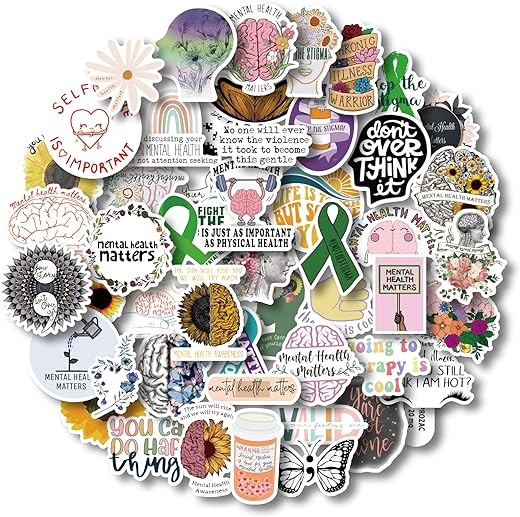In the journey toward emotional well-being, finding the right support system can make all the difference. Navigating peer support groups for emotional wellness can be both a comforting and empowering experience. In this blog post, readers will explore the invaluable role of peer support in promoting mental health and discover insights on how to effectively engage with such groups. Let’s embark on this journey together, building understanding and fostering connection to nurture our emotional well-being.
Discover a Range of Top-Rated Resources for Your Mental Well-being
What Are Peer Support Groups?
Peer support groups are organizations or communities of individuals who come together to provide mutual support, guidance, and understanding to one another. These groups are typically formed by individuals who share similar experiences, challenges, or goals. Their purpose is to offer a safe and non-judgmental space where members can share their feelings, struggles, and successes with others who can relate to their situation.
How Do Peer Support Groups Function?
- Community-Based Support: Peer support groups often operate in-person or online, connecting members through regular meetings, forums, or social media platforms.
- Facilitated Discussions: Groups may be led by trained facilitators or peer leaders who guide discussions and activities to promote a supportive environment.
- Share Experiences: Members share personal stories, offer advice, and provide emotional support to one another, fostering a sense of camaraderie and understanding.
Benefits of Peer Support Groups for Emotional Wellness
1. Camaraderie and Empathy
- Members experience a sense of belonging and acceptance, knowing they are not alone in their struggles.
- Empathy from peers who have faced similar challenges can help individuals feel understood and validated.
2. Practical Advice and Coping Strategies
- Peer support groups offer practical tips, insights, and coping mechanisms based on first-hand experiences.
- Members can learn new ways to manage stress, anxiety, or other emotional issues from those who have successfully navigated similar situations.
3. Reduced Isolation and Stigma
- Connecting with peers in a non-clinical setting helps combat feelings of isolation and reduce the stigma associated with mental health challenges.
- Sharing experiences openly and receiving support can contribute to a sense of empowerment and increased self-esteem.
4. Long-Term Emotional Support
- Peer relationships formed in support groups can extend beyond formal meetings, providing ongoing encouragement and understanding.
- The reliability of a supportive community can lead to lasting emotional resilience and improved mental well-being.
In conclusion, peer support groups offer a unique and invaluable resource for individuals seeking emotional wellness. By fostering connection, understanding, and practical support, these groups empower individuals to navigate life’s challenges with courage and resilience. Joining a peer support group can be a transformative step towards prioritizing mental health and well-being.
Factors to Consider When Choosing a Peer Support Group
When seeking out a peer support group, it’s important to consider various factors that can impact your experience and effectiveness of the group in meeting your needs and goals. Here are the key aspects to keep in mind before making your decision:
Group Dynamics
Evaluating Cohesion: Consider the level of bonding and trust within the group. Look for a group that encourages open communication and mutual support.
Group Size and Structure: Choose a group size that suits your comfort level. Some groups may be small and intimate, fostering deep connections, while others may be larger and provide a wider range of perspectives.
Member Diversity: A diverse group can offer different viewpoints and experiences, enriching the overall support network. Make sure the group aligns with your preferences in terms of demographics and backgrounds.
Facilitation and Leadership
Skills of the Facilitator: A skilled facilitator can guide discussions effectively, ensure all members are heard, and maintain a safe space for sharing. Look for groups led by trained professionals or experienced facilitators.
Inclusive Environment: Ensure the group promotes inclusivity and actively discourages judgmental behaviors. A supportive leader can set the tone for constructive interactions and empathy among members.
Conflict Resolution: Evaluate how conflicts are addressed within the group. Effective facilitation can help navigate disagreements and promote healthy communication.
Compatibility with Personal Needs
Understanding Your Goals: Define what you hope to gain from the support group. Whether seeking emotional support, practical advice, or a sense of community, choose a group that aligns with your objectives.
Accessibility and Timing: Consider practical aspects such as meeting frequency, location, and online options. Ensure the group’s schedule and mode of operation fit with your lifestyle and commitments.
Shared Values and Goals: Seek peers who share similar values or goals to foster a sense of belonging and mutual understanding. Compatibility in outlook can enhance the support you receive.
Remember, when selecting a peer support group, it’s essential to prioritize your comfort, goals, and the overall dynamics of the group. Taking the time to assess these factors can lead to a more fulfilling and effective support network.
Engaging Effectively in Peer Support
Engaging in peer support groups can provide a valuable source of comfort, understanding, and encouragement. Whether you are seeking to give or receive support, active participation is key to building meaningful connections and fostering a supportive environment.
Tips for Active Participation
Share Your Experiences
- Authenticity: Be open and honest about your experiences. Sharing your struggles and successes can help others feel less alone.
- Active Listening: Pay attention to others’ experiences and show empathy. Respond thoughtfully to their stories to create a reciprocal exchange of support.
- Normalize Differences: Acknowledge that everyone’s journey is unique. Sharing diverse perspectives can offer new insights and help build a sense of inclusivity within the group.
Contribute Constructively
- Offer Support: Provide encouragement, guidance, or resources to those in need. Sharing relevant information, such as recommending helpful books or tools, can be highly beneficial.
- Avoid Judgment: Create a non-judgmental space where individuals feel safe to express themselves without fear of criticism.
- Respect Boundaries: Be mindful of cultural differences, personal boundaries, and confidentiality within the group.
Foster a Supportive Environment
- Encourage Participation: Invite quieter members to share their thoughts or ask for feedback. Every voice contributes to the richness of the group’s interactions.
- Celebrate Small Wins: Recognize and celebrate achievements, no matter how small. Positive reinforcement can strengthen individuals’ sense of community and motivation.
- Moderate Conflict: Address conflicts with sensitivity and aim to find common ground. Disagreements can be resolved constructively, leading to enhanced communication and mutual understanding.
Real-life Examples
- Fitbit Community: Fitbit, a popular fitness tracker brand, has a vibrant online community where users share workout routines, challenges, and successes to inspire and support each other.
- NAMI Support Groups: The National Alliance on Mental Illness (NAMI) provides in-person and online support groups for individuals facing mental health challenges. These groups offer a safe space for sharing experiences and seeking guidance.
Empowering and engaging effectively in peer support groups requires active participation and a commitment to fostering a supportive environment. By sharing experiences, contributing constructively, and advocating for inclusivity, you can create a meaningful and impactful experience for yourself and others.
Challenges and Benefits of Peer Support
Engaging in peer support groups can be a valuable resource for individuals seeking emotional wellness. However, like any form of support, there are both challenges and benefits associated with participating in peer support activities.
Benefits of Peer Support
Connection and Understanding
- Engaging with peers facing similar challenges can provide a sense of belonging and connection.
- Peer support creates a safe space where individuals can express themselves freely without fear of judgment.
Shared Knowledge and Experience
- Peers can offer unique insights and experiences that professionals may not have.
- Learning from others who have overcome similar obstacles can be empowering and motivating.
Mutual Empowerment
- The give-and-take dynamic of peer support encourages individuals to take an active role in their own well-being.
- By supporting each other, peers can build resilience and confidence to face life’s challenges.
24/7 Availability
- Online peer support groups, such as 7 Cups, allow individuals to seek support anytime, anywhere.
- This accessibility can be especially helpful during moments of emotional distress or crisis.
Challenges of Peer Support
Lack of Professional Guidance
- Peer support groups may not always have trained facilitators to manage difficult situations.
- Without professional oversight, misinformation or harmful advice could be shared among group members.
Varied Levels of Participation
- Not all members may actively contribute or engage in a peer support group.
- Uneven participation levels may result in some individuals feeling unsupported or marginalized within the group.
Dependency on Peers
- Relying solely on peer support without seeking professional help when needed can be limiting.
- Some individuals may inaccurately believe that peers can provide all the care and guidance they require.
Conflict and Miscommunication
- Differences in opinions, values, or lifestyles among peers can lead to conflicts.
- Miscommunication or misunderstandings within the group can hinder the effectiveness of support interactions.
In conclusion, peer support groups offer a range of benefits for emotional wellness while also presenting challenges that need to be navigated. By understanding these factors, individuals can make informed decisions about participating in peer support activities effectively.
Embrace the Power of Connection and Growth
In conclusion, this blog post highlighted the significance of peer support groups in fostering emotional wellness. By showcasing the benefits of sharing experiences and receiving empathy from individuals who understand and validate your feelings, it emphasized the importance of such groups in promoting holistic well-being. Active participation in appropriate peer support groups can serve as a powerful tool in navigating personal challenges and enhancing emotional health. Remember, you are not alone in your journey towards well-being – seek out support, give support, and experience the transformational effects of peer solidarity.
Answers to Common Questions
How can individuals actively participate and benefit from peer support groups for emotional wellness?
Individuals can actively participate in peer support groups for emotional wellness by sharing their experiences, empathizing with others, offering and receiving advice, and learning coping strategies. By engaging in group discussions and activities, individuals can build a sense of community, receive support, and enhance their understanding of their emotions and challenges. Participating in peer support groups can lead to improved emotional well-being, increased self-esteem, and a greater sense of connection with others who can relate to their experiences.
What are some common challenges people may face when joining a peer support group for mental health?
When joining a peer support group for mental health, individuals may encounter common challenges such as feeling overwhelmed by sharing personal experiences, struggling with stigma and judgment from others, finding it difficult to open up and trust others, experiencing triggers related to their own mental health issues, feeling pressure to offer support to others while needing support eux, and logistical issues like scheduling conflicts or transportation barriers. It is important to be prepared for these challenges and remember that it’s okay to take things at your own pace. Seeking support from a mental health professional can also be beneficial in navigating these challenges.
What role do facilitators play in guiding peer support group discussions and maintaining a positive environment?
Facilitators in peer support group discussions play a crucial role in guiding conversations and maintaining a positive atmosphere. They help structure the discussion, keep it on track, ensure all participants have a chance to speak, and uphold the group’s guidelines. Facilitators also help foster empathy, active listening, mutual respect, and a sense of safety within the group.
By guiding the discussion, facilitators can ensure that it remains focused and productive, steering it away from unhelpful tangents or conflicts. They help create a supportive environment where participants can express themselves freely, share experiences, receive emotional support, and offer understanding to one another.
Facilitators also play a key role in addressing any conflicts or negative dynamics that may arise during the discussion, using their skills to mediate disputes, reaffirm boundaries, and redirect the conversation back to a positive and constructive path. Ultimately, facilitators are instrumental in creating a space where peer support can flourish, providing a foundation for growth, healing, and empowerment among group members.
What are some self-care strategies that individuals can implement alongside participating in peer support groups for better mental health support?
In addition to participating in peer support groups, individuals can implement various self-care strategies to enhance their mental health support. Some effective self-care practices to consider include:
- Prioritizing regular exercise: Physical activity can improve mood, reduce stress, and boost overall well-being.
- Cultivating mindfulness and relaxation techniques: Practices like meditation, deep breathing, or yoga can help reduce anxiety and promote a sense of calm.
- Maintaining a healthy routine: Establishing regular sleep patterns, eating nutritious meals, and staying hydrated can positively impact mental health.
- Engaging in hobbies and activities that bring joy: Participating in activities that you enjoy can provide a sense of fulfillment and help combat feelings of isolation.
- Setting boundaries and practicing self-compassion: Learning to say no, setting limits on work or social commitments, and being kind to oneself are crucial for mental well-being.


















It’s important to destigmatize seeking help for emotional wellness, and this article addresses that well.
I wish the article had more information on how to locate peer support groups in different communities.
I appreciated the emphasis on finding a peer support group that aligns with one’s own values and needs.
Overall, a thought-provoking read that highlights the significance of peer support for emotional well-being.
Sharing personal experiences in peer support groups can really foster a sense of community and healing.
I found the tips on effective communication within peer support groups very helpful.